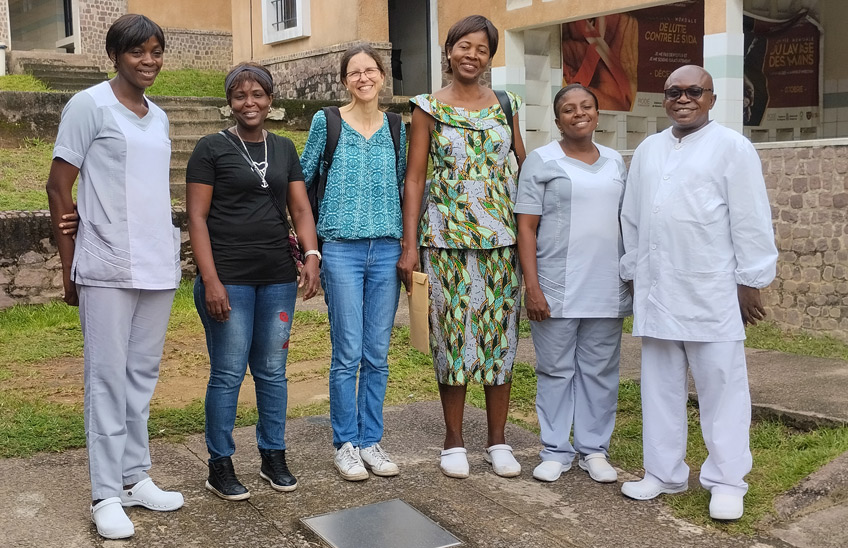Health of the Government of Navarra finances with other institutions a program for the prevention of cervical cancer in Congo
University of Navarra professor Silvia Carlos has traveled to Kinshasa to promote project "Elikia".

FotoCedida/ProfessorSilvia Carlos at the Eliba Health Center with part of the nursing team and laboratory involved in the program.
27 | 05 | 2024
Dr. Silvia Carlos, full professor at department of Preventive Medicine and Public Health of the University of Navarra, has traveled to Kinshasa to take new steps in the implementation of the "Elikia" program for the prevention of cervical cancer. In the Democratic Republic of Congo, cervical cancer, together with breast cancer, is the cancer that causes the most deaths among women in this country in the heart of Africa. In spite of this, "preventive strategies are scarce in the country. A high percentage of people start sexual relations at an early age, have multiple sexual partners or engage in other risky behaviors that favor infection by the human papillomavirus (HPV), the cause of this cancer," explains Professor Silvia Carlos.
The project "Elikia", hope in Lingala, began to take shape in 2017 by the hand of Dr. Luis Chiva, director of department of Gynecology and Obstetrics of the Clínica Universidad de Navarra, who has traveled to the Congo in summer periods with groups of Medical and Nursing students from the University of Navarra.
During these stays, they demonstrated that "early diagnosis of cervical cancer could be made in a very simple and inexpensive way: all that was needed were a few drops of acetic acid (vinegar) and lugol (betadine), which made it possible to visualize possible precancerous lesions in the cervix and their treatment," says Professor Silvia Carlos.
"This year, thanks to funding from department de Salud del Gobierno de Navarra, the Fundación de Amigos de Monkole, ONAY and the generosity of many people, we are able to incorporate new advances to project. Early diagnosis is not going to be limited to the campaigns that have been carried out previously, but we want to implement a program established in the routine Primary Care of the Monkole Hospital and its four health centers distributed throughout the region of Kinshasa".
Another of the novelties included in this program is the possibility of performing an HPV test on a vaginal sample collected by the patient herself and having the results within an hour "which will allow women from the city and rural areas to leave not only with the diagnosis made but also with local treatment of precancerous lesions, if they present them," says Silvia Carlos.
For the professor of the University of Navarra, this trip to Kinshasa has been special both in its medical dimension, as they have been able to advance with the program "surely not as much as desired, but the times and difficulties in Africa are different and you have to adapt" and from a social perspective and staff. "I have spent many hours observing: hundreds of people everywhere, many of them with almost nothing to live on, and with nothing or no one to hold on to".
